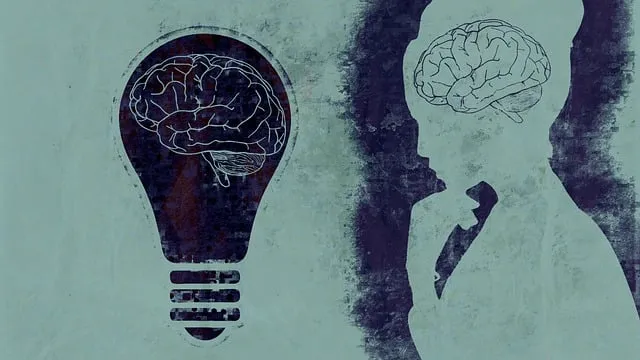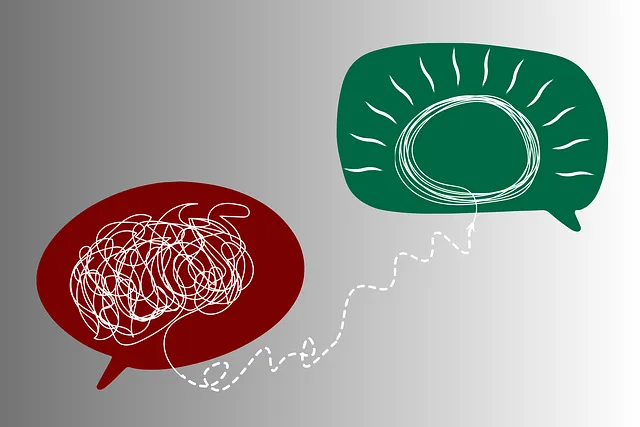Louisville Kaiser Permanente mental health services prioritize Emotional Intelligence (EQ) development through educational programs focusing on self-awareness, emotional management, crisis intervention, and diverse needs support. Cultivating EQ strengthens relationships, enhances communication, builds resilience, and promotes well-being. Key components include mindfulness practices for self-awareness, active listening and empathy for strong social skills, emotion regulation techniques, and conflict resolution skills. These initiatives align with burnout prevention strategies and foster a positive work environment, benefiting both professionals and patients.
Emotional intelligence (EQ) is a powerful tool that enhances personal growth and professional success. Understanding EQ involves recognizing its potential to transform interactions and decision-making. This article guides you on a journey through Louisville Kaiser Permanente’s mental health resources, exploring essential components of building EQ. From self-awareness to empathy, each section unveils strategies for unlocking your emotional potential, fostering meaningful connections, and navigating life’s challenges with resilience.
- Understanding Emotional Intelligence: Unlocking its Potential
- The Role of Self-Awareness in Building EQ (Emotional Quotient)
- Enhancing Social Skills for Effective Communication
- Managing and Regulating Emotions: Strategies for Resilience
- Practicing Empathy: Connecting with Others on a Deeper Level
Understanding Emotional Intelligence: Unlocking its Potential

Emotional intelligence (EQ) is a powerful tool for personal and professional growth, especially in today’s fast-paced world. It involves recognizing, understanding, and managing one’s own emotions, as well as empathizing with others. Louisville Kaiser Permanente mental health services offer valuable resources like educational programs designed to enhance EQ. These programs often include crisis intervention guidance and self-awareness exercises tailored to meet diverse needs.
By developing emotional intelligence, individuals can improve their relationships, make better decisions, and navigate challenging situations with resilience. It enables people to communicate more effectively, build stronger connections, and foster a positive work environment. In the realm of mental health education, focusing on EQ can be transformative, helping folks unlock their full potential and lead happier, more fulfilling lives.
The Role of Self-Awareness in Building EQ (Emotional Quotient)

Self-awareness is a cornerstone of emotional intelligence (EQ) development and plays a vital role in enhancing one’s overall emotional well-being. It involves recognizing and understanding your emotions, strengths, weaknesses, and how they impact your thoughts and behaviors. This introspective process is essential for healthcare providers working with Louisville Kaiser Permanente mental health services, as it can prevent burnout. By cultivating self-awareness, professionals can better manage their emotional responses to challenging situations, leading to improved patient care.
Promoting self-awareness encourages individuals to practice mindfulness, reflect on their experiences, and develop a deeper understanding of themselves. It involves acknowledging and accepting one’s emotions, which is a powerful tool in fostering positive thinking and emotional resilience. This skill set not only benefits healthcare providers but also enables them to model healthy coping mechanisms for their patients, contributing to the broader goal of Burnout Prevention Strategies for Healthcare Providers and enhancing the overall Emotional Well-being Promotion Techniques within the healthcare setting.
Enhancing Social Skills for Effective Communication

Developing strong social skills is a key component of emotional intelligence, which can significantly enhance effective communication. At Louisville Kaiser Permanente mental health services, professionals emphasize the importance of active listening, empathy, and assertiveness in fostering meaningful connections with individuals seeking support. By cultivating these skills, mental health professionals can create a safe and supportive environment, encouraging clients to open up and share their thoughts and feelings openly. This, in turn, facilitates more productive conversations and better understanding between the therapist and client.
Effective communication goes beyond passive listening; it involves recognizing non-verbal cues, adapting one’s communication style to suit different audiences, and responding thoughtfully. Louisville Kaiser Permanente, through its mental health risk assessment programs, encourages practitioners to assess not only a client’s symptoms but also their interpersonal dynamics. This holistic approach includes teaching coping skills development, which equips individuals with valuable tools to navigate social situations more effectively, manage stress, and build resilience in their personal and professional lives.
Managing and Regulating Emotions: Strategies for Resilience

Managing and regulating emotions is a vital part of building emotional intelligence and enhancing mental wellness. It involves recognizing and understanding your feelings, as well as learning to control them in healthy ways. This process starts with self-awareness—identifying what you’re feeling and why. Keeping a Mental Wellness Journal can be an effective tool; jotting down thoughts and emotions helps to clarify and process them. Once aware, strategies like deep breathing exercises or mindfulness meditation can quickly regulate strong feelings, preventing them from overwhelming you. These techniques are simple yet powerful tools accessible through resources like the Louisville Kaiser Permanente mental health number, offering guidance tailored to individual needs.
Additionally, practicing Emotional Regulation involves responding to emotions constructively. This might include engaging in physical activity to release tension or using positive self-talk to reframe negative thoughts. Learning Conflict Resolution Techniques is also crucial; addressing interpersonal conflicts with calmness and empathy strengthens emotional intelligence, fostering healthier relationships and a more resilient mindset.
Practicing Empathy: Connecting with Others on a Deeper Level

Practicing empathy is a powerful tool for building emotional intelligence and fostering deeper connections with others. It involves stepping into someone else’s shoes, understanding their feelings, and responding with compassion. This skill is especially crucial in healthcare settings where healthcare providers, like those at Louisville Kaiser Permanente, often deal with high-stress situations and diverse patient populations. By cultivating empathy, professionals can enhance patient care, improve communication, and create a more supportive environment.
Empathy allows healthcare workers to connect on a deeper level, recognizing the unique experiences and emotions of each individual. This connection can lead to increased trust, improved treatment adherence, and better health outcomes. Moreover, mindfulness meditation and stress management workshops organized by Louisville Kaiser Permanente can further support mental health and burnout prevention strategies for these essential providers.
Emotional intelligence (EQ) is a powerful tool for personal and professional growth, and Louisville Kaiser Permanente’s commitment to mental health services underscores its understanding of this concept. By cultivating self-awareness, enhancing social skills, managing emotions effectively, and practicing empathy, individuals can unlock their full potential and navigate life’s challenges with greater resilience. Embracing these strategies can lead to improved relationships, increased job satisfaction, and a deeper sense of well-being, making emotional intelligence a valuable asset in every aspect of our lives.






